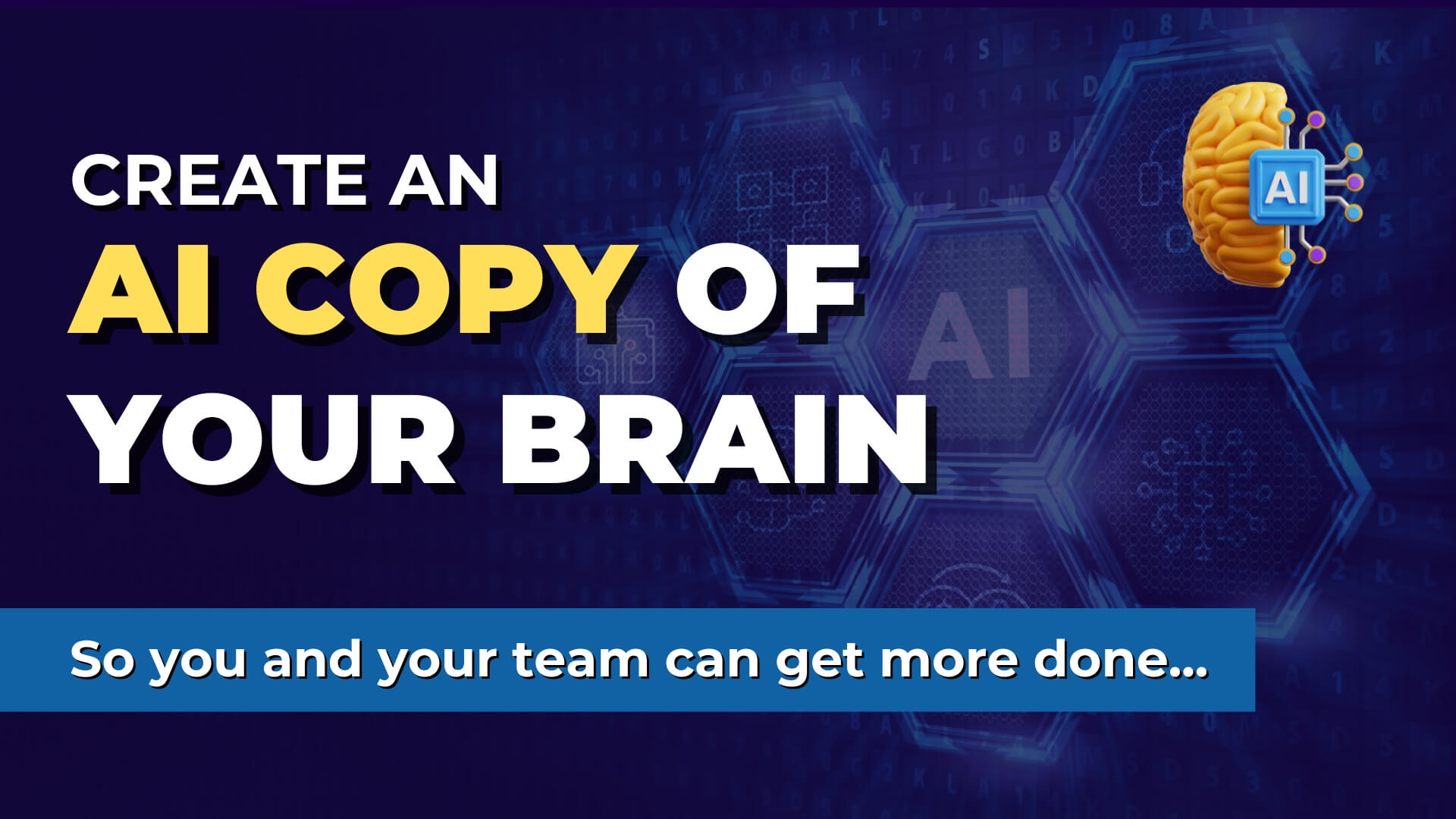Create an AI copy of your brain…
In a previous post, I detailed why I’m still creating original content and why you should too.
At the same time, if we don’t leverage AI aggressively we are going to be outrun by competitors that do.
How to break this paradox?
Create original content but use AI to amplify it…
CRAZY! 1,000 YouTube Shorts in 17 MINUTES… (Canva + ChatGPT)
Right after I published last week’s newsletter a YouTube video popped up with the title: “CRAZY! 1,000 YouTube Shorts in 17 MINUTES… (Canva + ChatGPT)”
I get a lot of these as I track a lot of AI channels and tools.
My plan was to use it as an example of what not to do but I wanted to check out the automation.
Basically they were using ChatGPT to generate tips and quotes by topic. Then they were using Canva and automation to turn them into short videos to upload to YouTube.
The video was legit, it did result in hundreds of pieces of content. Great use of automation and tech.
Don’t be average
The problem? It was generic, average ChatGPT tips and advice.
Nothing original, certainly nothing showcasing the expertise or personality of the person publishing them.
I was about to add it to my list of examples and move on but then I remembered what I had just wrote last week about creating your own body of knowledge and eventually, an AI copy of your brain.
Use AI to copy your brain
That triggered an idea: what if instead of querying ChatGPT for random facts, I queried my own body of knowledge? Then applied the automation?
For a quick experiment, I grabbed a transcript from one of my YouTube videos. I uploaded the transcript to ChatGPT then prompted it to create tips and quotes in the same way, but using my knowledge.
The results were good, the key points were mine and the tone could be changed pretty easily with different prompts.
From there I used the same process to create about 20 short video quotes in Canva.
This is how you can create original content (my initial video) and use AI to amplify it (turning into 20 new assets).
Why original content is so important
The key is first creating original content. Your own content.
What’s interesting about this scenario I’ve described is that it opens scenarios in addition to traditional repurposing.
In my agency we provide a repurposing service.
So for my YouTube videos we would already take it and turn it into 10 short highlights and 10 quotes. That is traditional repurposing, pulling more assets from the same original content.
In this new scenario there are additional net new assets being created from the original content.
More opportunities to get your message out.
Feeding the AI copy of your brain
This was a simple example with just one piece of source content. With other tools like ChatPDF and more coming, you’ll be able to use your entire body of knowledge and generate all kinds of new content from your own thoughts and words.
This is why I keep coming back to the notion of an AI copy of my brain. That is going to be the key to producing a higher volume of content that is still mine.
The key is training the AI on all of your existing work while continuing to create new original content and training it on that as well.
One of the main reasons we built an entire content management system for our Agency and clients is this exact scenario: to get everything we’ve ever written or recorded in one place.
Scaling this up even further
In this example I used AI to generate new tips and quotes from my own knowledge, then turned them into short videos to post on my social channels.
Let me ask you: Did I need to be involved in that process at all?
No.
In my agency I use a model of figure it out, write it out, then delegate it out.
I just figured this process out. Now we’re writing it out. Then next week I’ll be delegating it out.
In this case, I don’t need to be involved at all, yet the content output is still my words and thoughts.
In future iterations of this, I’ll be having my team query my AI brain to create new content, from my knowledge, at an even higher scale.
They’ll use prompts like “You are an AI copy of Dave. He has uploaded his entire knowledge base to you. Write an article about <topic> that leads to <conclusion> and <call to action>
For a longer-form piece like that I’ll still do the rough edit afterwards to check and make sure it’s my thoughts and the AI hasn’t deviated.
The longer the output the more likely that is (for now)
In the agency we already have the team and tools to then take that raw content and turn it into dozens of formats and assets.
The more you publish, the more chances you have for your ideal audience and customers to find you and your programs.
Take Action
- I encourage you to re-read both last week’s issue and this one. I think these are two of the most important and strategic pieces I’ve written in a long time.
- Start thinking about how you can begin building the AI copy of your brain. Getting all of your existing knowledge and content into one place while continuing to create net new knowledge
- Start implementing what I call a Content Engine, the strategy, tools, systems, and team that will help you do everything I’ve described
- Watch this space next week as we are opening the doors to our completely done-for-you content engine service! You just provide the raw content, and we turn each piece into dozens of assets and hundreds of posts. We help you build the AI copy of your brain…

David Ziembicki
David Ziembicki is the founder and CEO of the Expert Business Agency, which helps coaches, course, and membership creators build their online businesses. David has been an industry-leading technology and business consultant for over 25 years having worked at Microsoft, Deloitte, SAIC, and Avanade.

